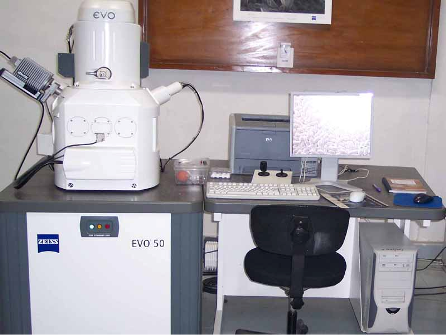- Existing Central Facilities
- Central Glass Blowing
- TEM
- SEM
- AFM/STM
- Liquid Nitrogen
- NMR
- MALDI/MS
- SCF Bio-informatics
- Rapid Protyping
- GC/MS





Steady State Fluorescence Spectrometer
Instrument: Steady State Fluorescence Spectrometer
Location: MS 733P
Faculty In-Charge: Pramit K Chowdhury (pramitc@chemistry.iitd.ac.in)
Instrument Details:
Make and Model: Edinburgh Instruments (UK); FLS920
(For more details about this instrument check out the following link:
http://www.edinburghphotonics.com/spectrometers/fls920-fluorescence-spectrometers/)
Excitation Source: Xenon Lamp (450 W)
Other features: Excitation and Emission Monochromators
Variable slits
Polarisers (Emission and Excitation)
Sample Chamber is temperature controlled (through Peltier) with
temperature range from 5 to 100 °C
Accessories: (i) Multiplate Reader
(ii) Autotitrator
(iii) Range of filters (long pass) available
Booking Options for measurements:
(i) Please mail to the faculty-in-charge (e-mail address provided above) for fixing
time slots.
(ii) Before booking, please make sure that you have a fair amount of idea of what
sort of information the instrument can provide you with.
(iii) It is preferable that you bring your own cuvettes for experiments; though the
instrument came with a few cuvettes, it is always advisable to have your own
to minimize impurity/contamination.
(iv) You are highly encouraged to read up fluorescence; an excellent book in this
regard is ‘Principles of Fluorescence Spectroscopy by Joseph R. Lakowicz’.
(v) Any questions/queries with regards to the instrument should be addressed to
the faculty-in-charge.
Facilities




